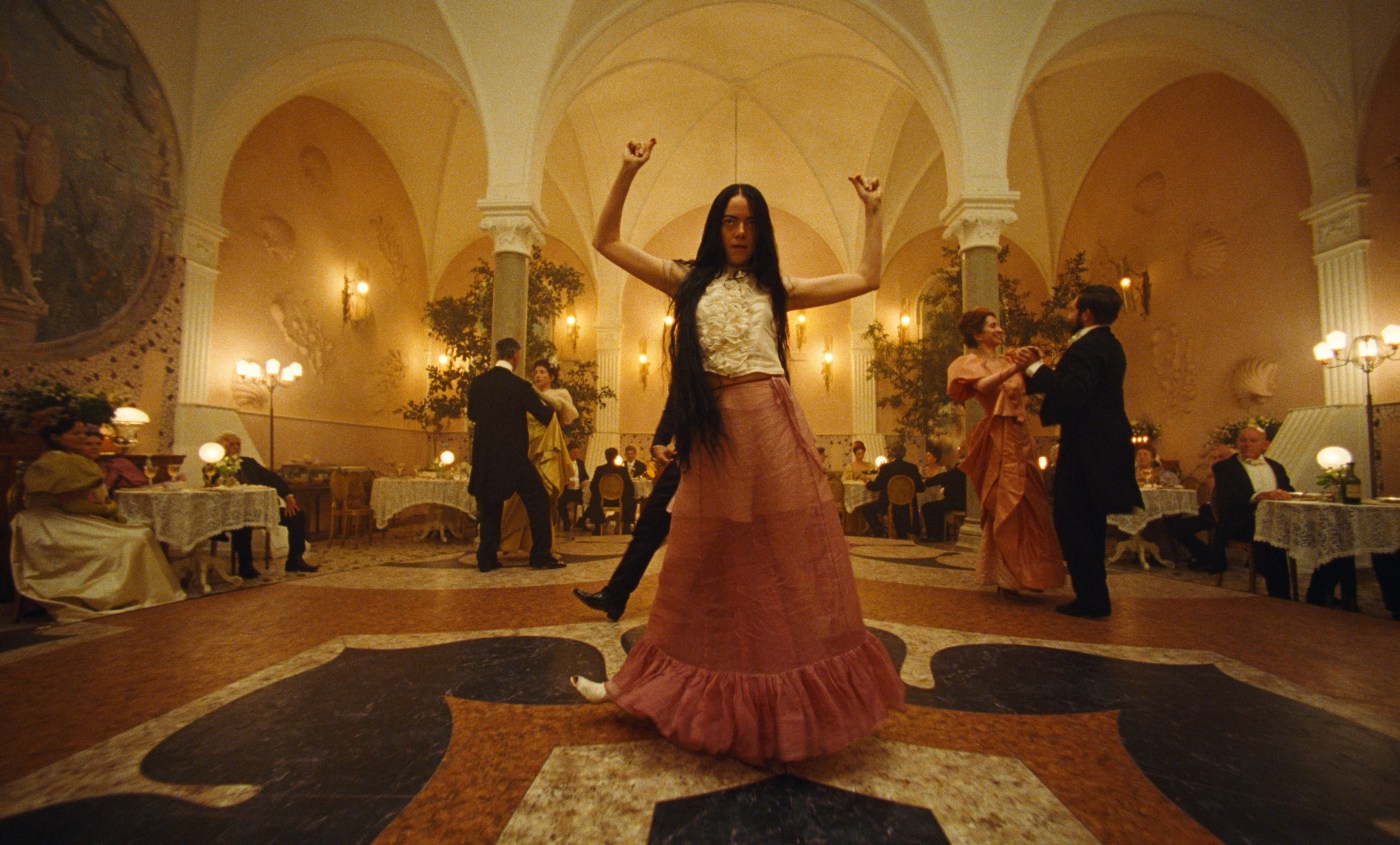
‘Poor Things’ a rich cinematic feast
Who would have guessed that Greek fantasist Yorgos Lanthimos (“The Lobster,” “The Favorite”) was the new James Whale? His latest piece of darkly comic, sexually twisted whimsy is called “Poor Things,” featuring a great Emma Stone of his award-winning 2018 semi-historical effort “The Favorite,” sporting a long shock of J-horror black hair, as a Victorian-era female creature that a mad scientist brings back from the dead by diabolical means. It’s “The Bride of Frankenstein” without the groom.
Stone’s she-monster Bella Baxter is the brainchild of Dr. Godwin Baxter (Willem Dafoe). She just calls him “God” for short. Godwin is a recluse with a horribly scarred face and the son of a monstrous father, who mistreated him terribly as a child. But Godwin has nonetheless become a brilliant surgeon and scientist who gives hilariously gruesome lectures at a university and hires a student named Max McCandles (Ramy Youssef) to take care of Bella and teach her things.
Godwin, Bella and McCandles live in Godwin’s vast manor house with a servant. It’s like a “Downton Abbey” to the 10th power with a resident “dog-chicken.” Bella, who calls McCandles “Candles,” dresses in haute couture, presumably a whim of Godwin’s. She also has a tendency to smash expensive things when she is angry.
When Bella becomes engaged to “Candles,” who appears to love her, and then runs off to Portugal with debauched lawyer Duncan Wedderburn (a delightfully libidinous Mark Ruffalo), we begin to see what is going on. As Bella becomes more intelligent she comically discovers self-love and then becomes completely open to sex, but she will not allow any man to tell her how to live. Meanwhile, back in England, Godwin and McCandles create a flawed replacement for Bella named Felicity (Margaret Qualley). When Bella and Duncan board a cruise ship, you feel the influence of Federico Fellini’s elegiac effort “The Ship Sales On” (1983) on Lanthimos and screenwriter Tony McNamara of the great 2021 Stone vehicle “Cruella.” One might say that “Poor Things” is the crueller “Cruella.”
“Poor Things” is in fact based on the 1992 novel by Scotsman Alasdair Gray, whose work has been compared to Orwell, Borges and Kafka. Starting with its image of a beautiful woman falling off a London bridge, “Poor Things” is an artistic triumph. The score of Jerskin Fendrix is marvelously expressive. Lensed by Robbie Ryan (“The Favorite”) in both black & white and color, the film is like a dream with some scenes shot with a convex lens. Production design by Shona Heath (“Eye Ear You”) and James Price (“Paddington 2”) can be described as “Universal horror-movie chic.”
Yes, many images are disturbing, ghastly and disgusting, and sex and nudity are rampant. But a shot of McCandles and Bella walking in a dark wood is like a Gainsborough painting sprung to life. At first, Bella refers to sex as “furious jumping.” Later, a more mature Bella uses the expression out of a sense of play. A flashback to Bella’s rebirth recalls Fritz Lang’s monumental “Metropolis” (1927). Yes, Bella, who would eat Barbie for lunch, is the 21st century version of Brigitte Helm’s sexy robotrix.
“Poor Things” is also a sci-fi “Moll Flanders” with Bella taking a job at a Paris brothel run by an elf-sized madam (Kathryn Hunter), who recalls horror-film regular Maria Ouspenskaya. Among Bella’s regulars is a French priest. With “Poor Things,” Lanthimos has both birthed a newborn classic and performed an autopsy on his artist-soul. As this film’s unstoppable she-monster/sex machine, Stone is fearless and brilliant. Marvel fatigue? Here’s a new superhero. Her name is Bella Baxter. She’s alive, alive.
(“Poor Things” contains ghastly images, surgical procedures, violence, nudity and simulated sex)
“Poor Things”
Rated R. At the AMC Boston Common, Coolidge Corner Theater and suburban theaters. Grade: A


